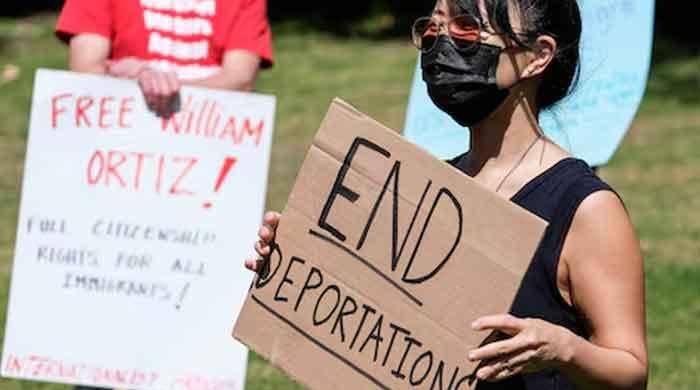Data Sharing Sparks Privacy Concerns as Trump Administration Targets Undocumented Immigrants
- Access to migrants’ databases granted to Department of Government Efficiency personnel.
- Officials at HUD are developing a rule to prohibit mixed-status households.
- The White House supports these measures, citing data sharing for migrant identification and removal.
Personal data, typically protected from distribution, is reportedly being utilized by the current administration to locate undocumented immigrants at their workplaces, educational institutions, and residences, frequently with the aim of displacing them from their homes and jobs.
According to reports, the Department of Government Efficiency staffers have been granted access to government databases that contain private information regarding individuals’ employment and residence.
This initiative aims to identify undocumented immigrants and facilitate the mass deportation agenda.
Agencies such as the Department of Housing and Urban Development, the Social Security Administration, and the IRS possess databases containing private information submitted by immigrants of various statuses, who believed their data would remain confidential.
Officials at HUD are reportedly drafting a regulation to prevent mixed-status households, defined as those including individuals with differing immigration or citizenship statuses, from accessing public housing, according to unnamed staff members.
Spearheaded, DOGE is analyzing HUD data to identify undocumented immigrants and subsequently share this information with the Department of Homeland Security, with the intention of removing individuals from public benefits.
This action is being pursued irrespective of whether these individuals reside with someone holding legal status.
This initiative represents the latest in a series of actions aimed at leveraging government data to support the executive branch’s objectives.
However, legal experts caution that these actions could breach privacy regulations and erode trust in the government.
“It’s not solely about one specific group; it affects everyone,” stated Tanya Broder, senior counsel for health and economic justice policy at the National Immigration Law Centre. “Everyone values their privacy. No one desires their health-care or tax information to be publicized and exploited against them.”
The White House has endorsed these measures, asserting that data sharing is essential for identifying and removing migrants.
“Information sharing among agencies is vital for identifying individuals within our nation, including violent criminals, assessing potential public safety and terror threats, removing these individuals from voter rolls, and identifying their utilization of public benefits at taxpayer expense,” stated a Homeland Security assistant secretary for public affairs.
“American tax dollars should prioritize the well-being of American citizens, especially concerning critical issues like our nation’s housing crisis,” commented Secretary of HUD, Scott Turner, in a statement. “This agreement will optimize resources, including technology and personnel, to ensure that American citizens remain the sole priority in public housing initiatives.”
IRS officials have consented to share specific tax information pertaining to undocumented immigrants with ICE. The agency might utilize this data to pinpoint the location of millions of individuals suspected of residing in the country unlawfully.
Crackdown on protesters
The administration initiated investigations into five universities in February, examining their handling of antisemitism allegations.
Documents and statements from three attorneys with the Office for Civil Rights reveal that Education Department political appointees instructed the attorneys handling these cases to request the names and nationalities of protesters against Israel’s war.
When questioned about the department’s pursuit of protester data and its potential connection to immigration matters, the Education Department’s acting assistant secretary for civil rights, Craig Trainor, affirmed that the information was necessary to evaluate the universities’ handling of the antisemitism cases.
His response did not explicitly address the issue of deportations.



Comments (0)
No comments yet. Be the first to comment!
Leave a Comment